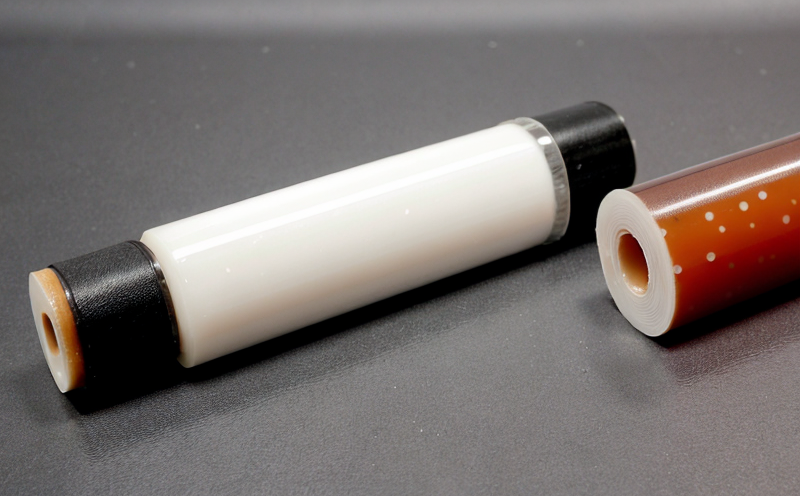Cohesion vs adhesion in different adhesive types
The Power of Cohesion vs Adhesion Unlocking the Secrets of Different Adhesive Types with Eurolabs Expert Laboratory Services
In todays fast-paced business world, the importance of adhesive materials cannot be overstated. From construction and manufacturing to packaging and healthcare, adhesives play a critical role in holding things together literally. However, not all adhesives are created equal. Understanding the fundamental principles of cohesion vs adhesion is crucial for businesses looking to optimize their operations, improve product performance, and stay ahead of the competition.
At Eurolab, our team of experts has spent years studying the intricacies of adhesive materials, providing laboratory services that help companies like yours make informed decisions about their products. In this comprehensive article, well delve into the world of cohesion vs adhesion, exploring the differences between various adhesive types and highlighting the key benefits of using each one.
What is Cohesion vs Adhesion?
To begin with, lets define the terms
Cohesion The intermolecular forces that hold molecules together within a substance. In other words, cohesion refers to the internal bond strength of an adhesive.
Adhesion The interfacial forces between two substances, including adhesives and substrates. Adhesion measures the ability of an adhesive to stick to its surface.
While these concepts might seem straightforward, their implications are far-reaching. By understanding the balance between cohesion and adhesion, companies can optimize their adhesive materials for specific applications, reducing failures, waste, and costs in the process.
The Importance of Cohesion vs Adhesion in Different Adhesive Types
Choosing the right adhesive is crucial for ensuring product performance, durability, and safety. Here are some key advantages of using different adhesive types based on cohesion vs adhesion
Acrylic Adhesives
High flexibility Acrylic adhesives offer excellent flexibility, making them ideal for applications where thermal expansion and contraction occur.
Good resistance to chemicals Acrylics exhibit good chemical resistance, allowing them to withstand exposure to various solvents and cleaning agents.
Easy to apply These adhesives are relatively simple to use, reducing application time and costs.
Epoxy Adhesives
High bond strength Epoxy adhesives boast exceptional bonding capabilities, making them suitable for heavy-duty applications where high tensile strength is required.
Chemical resistance Epoxies demonstrate excellent chemical resistance, ensuring durability even in harsh environments.
Long shelf life These adhesives have a long shelf life, reducing waste and inventory management costs.
Polyurethane Adhesives
Flexible Polyurethane adhesives offer flexibility, making them suitable for applications where thermal expansion and contraction occur.
Good impact resistance These adhesives exhibit good impact resistance, ensuring product durability in the face of mechanical stress.
Easy to clean up Polyurethanes are relatively easy to clean up, minimizing mess and waste.
Silicone Adhesives
High temperature resistance Silicone adhesives demonstrate exceptional heat resistance, making them ideal for high-temperature applications.
Chemical resistance Silicos exhibit good chemical resistance, ensuring durability in various environments.
Easy to apply These adhesives are relatively simple to use, reducing application time and costs.
Hot Melt Adhesives
Fast setting time Hot melt adhesives offer fast setting times, allowing for quick production cycles and reduced labor costs.
Good heat resistance These adhesives demonstrate good heat resistance, ensuring product durability in high-temperature applications.
Eco-friendly Hot melts are often eco-friendly, reducing waste and environmental impact.
Pressure-Sensitive Adhesives (PSAs)
Easy to apply PSAs are simple to use, eliminating the need for specialized equipment or skilled labor.
Good conformability These adhesives exhibit good conformability, allowing them to adapt to complex surface geometries.
Repositionable PSAs can be easily repositioned during application, reducing waste and improving product yield.
Cyanoacrylate Adhesives
Fast setting time Cyanoacrylates offer fast setting times, allowing for quick production cycles and reduced labor costs.
High bond strength These adhesives boast exceptional bonding capabilities, making them suitable for applications where high tensile strength is required.
Good chemical resistance Cyanoacrylates exhibit good chemical resistance, ensuring durability in various environments.
Key Benefits of Using Cohesion vs Adhesion in Different Adhesive Types
By choosing the right adhesive material based on cohesion and adhesion principles, businesses can reap numerous benefits, including
Improved product performance
Reduced waste and inventory costs
Increased efficiency and productivity
Enhanced durability and longevity
Better chemical resistance and sustainability
Simplified application processes
Frequently Asked Questions (FAQs)
What is the difference between cohesion and adhesion?
Cohesion refers to the internal bond strength of an adhesive, while adhesion measures the interfacial forces between two substances.
Why are acrylic adhesives popular in construction applications?
Acrylics offer high flexibility, good chemical resistance, and easy application, making them suitable for construction projects where thermal expansion and contraction occur.
Can epoxy adhesives be used in extreme temperatures?
Yes, epoxy adhesives exhibit excellent bonding capabilities, even in harsh environments with high or low temperatures.
Are polyurethane adhesives eco-friendly?
Some polyurethane adhesives are considered eco-friendly, but its essential to verify their environmental impact and sustainability before making a decision.
What is the primary advantage of using hot melt adhesives?
Hot melts offer fast setting times, reducing production cycles and labor costs.
Conclusion
In conclusion, understanding cohesion vs adhesion in different adhesive types is crucial for businesses seeking to optimize product performance, reduce waste, and stay competitive. By choosing the right adhesive material based on cohesion and adhesion principles, companies can reap numerous benefits, from improved efficiency and productivity to enhanced durability and sustainability.
At Eurolab, our team of experts provides laboratory services that help companies like yours make informed decisions about their products. With a deep understanding of adhesive materials and their applications, were committed to empowering businesses with the knowledge they need to succeed.
Dont compromise on product performance or safety choose the right adhesive for your needs. Contact us today to learn more about our laboratory services and how we can help you unlock the full potential of your products!




